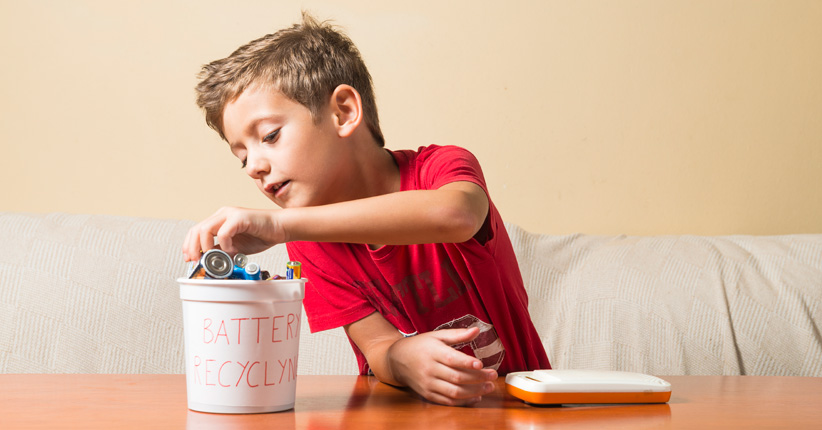Which Batteries Are Best for the Environment?
- by Joe Weber - updated on 11/9/2022

We all care about the environment in one way or another. Take a look at which batteries are the best to use with the environment in mind and see what Batteries Plus has to offer to help you with your battery and recycling needs.
Rechargeable or Disposable?
When you look at the long-term effects of batteries and the environment, rechargeable batteries absolutely have a positive impact on the environment if they are used to their full potential. Rechargeable batteries do use more natural resources and raw materials during the manufacturing process than single-use alkaline batteries but as long as you get at least 50 recharges out of your rechargeable battery, you are helping the environment significantly.
As an added benefit, you are keeping all of those batteries out of landfills. Every year an estimated 3 billion batteries are thrown out with the trash and sit in landfills. If everyone switched to rechargeable and got at least 50 recharges out of their batteries before they are replaced, that number could easily be reduced down to less than 100 million batteries thrown out annually.
Rechargeable batteries are a considerably better power source when they can be used. For convenience and for the environment.
Are Lithium Batteries Better Than Alkaline?
Alkaline batteries are a great battery choice. They're cheap, have excellent power and are very easy to dispose of. In small quantities, these batteries can be thrown out with your household trash. Large quantities will need to be recycled. However, a significant downside to alkaline batteries is that they will lose power over time until they are completely depleted.
Lithium batteries on the other hand will deliver the same level of power from 100% charge to 1% thanks to how lithium batteries are engineered. Lithium batteries are also considerably lighter than alkaline batteries and will power your electronics for roughly 7x longer than alkaline. They are, unfortunately, generally more expensive than alkaline but you will not need to replace them as often which is one reason why they are more environmentally friendly. Lithium batteries are offered in both single-use and rechargeable options and offer the same level of performance no matter which type you choose.
What Other Rechargeable Batteries are There?
Lithium is not the only option when it comes to rechargeable household batteries. One that is readily available in most battery sizes (AA, AAA, 9V, etc) at almost any store is the Nickel Metal Hydride (NiMH) battery. NiMH batteries do not have as slow of a discharge rate as lithium batteries, losing about 50% of their charge when sitting for a month. But don't fret, they also have a higher energy density so they have more power contained in the same size battery vs. their lithium counterparts.
NiMH batteries are compatible with any device that takes alkaline batteries and can be drained all the way down to 0% charge and they can still be charged back to 100%. NiMH batteries are also safer than many battery chemistries as they have less active material in each cell.
Nickel Metal Hydride batteries are more expensive than alkaline but can often be bought together with a 1-Hour or 4-Hour charger for easy setup to get you started with rechargeable batteries.
How Can I Easily Recycle Old Batteries?
From batteries to small electronics, Batteries Plus makes it as easy as possible to recycle items that you have lying around the house. Have old fluorescent bulbs? We can handle those too. Batteries Plus is dedicated to helping the environment by offering recycling services for all of our customers.
Whether you have one old battery or fluorescent light sitting in your garage or you own a business that has a pallet of batteries or bulbs, we have a solution for you to make your lives easier while helping the planet. Take a look at all of the items we recycle and how your local Batteries Plus can help you.